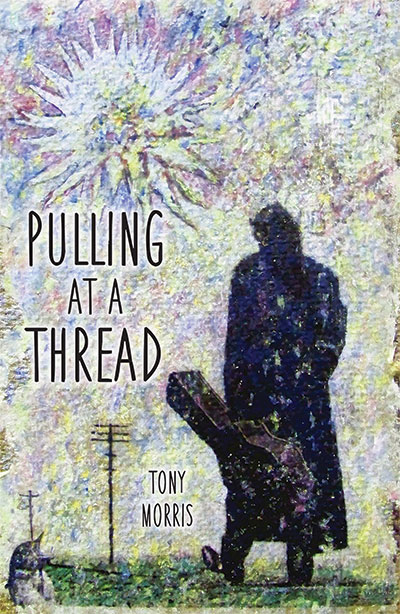By Rena Ali, Staff Writer
Associate Professor of English at Armstrong, Tony Morris, describes himself as a not quite neo-Romantic.
Morris has published a new book titled, Pulling at a Thread. The book is scheduled to come out spring of this year.
Pulling at a Thread is his third book and second volume of poetry. While Morris struggled to balance all of his responsibilities during this venture, he is excited the book is coming out after seven years of hard work.
Morris emphasizes this book can “celebrate joys and feel loss at the same time, a paradox we are stuck in.”
His book of poetry, which is separated into three sections, deals with loss, grief, family, relationships, nature, and culture.
The first section of his book revolves around driving alone, along empty highways and roads, a personal inspiration for Morris.
The second section of Pulling at a Thread focuses on grief and loss from a man’s point of view who has lost his companion and his son who witnesses it. This section is the only deliberately intentional section, while the others were written separately and connected through underlying themes.
The last section of his book has a musical theme, which might be continued later, it centers around the American culture through pop-music of different eras. He considers this section to be more autobiographical.
He hopes to be touring for Pulling at a Thread by the fall of 2015.
Tony Morris’ writing process for Pulling at a Thread, and other volumes of poetry, consists of writing poems individually or as a series and placing them in some sort of order to be cohesive. The poems written as a series are easy to put into volumes, since they were intentionally written together and share similar elements.
Poems written individually have to possess underlying themes or subjects before they can be organized as a volume. From there, the poems in a series can later be separated into sections or left as individual pieces.
Morris’ advice to aspiring poetry writers is to write for student or college newspapers. He considers this good training for writers due to the similarities in writing news and poetry, such as value of space and the control or focus of words (i.e. placement, impact of meaning, use of concrete or strong words).
Morris advises all writers no matter their skill level should “learn to be a good listener of criticism.”
It takes great strength and dedication to advance writing skills and it is not easy. Morris said all writers need to “be courageous, and thick-skinned.” He asserts that the most important thing an aspiring writing can do is to read great works of literature “as widely and as quickly” as one can.





